The Riverside Museum attracts visitors with its beautiful modern architecture and exciting exhibits. And it has another special attraction at the back: the Tall Ship.
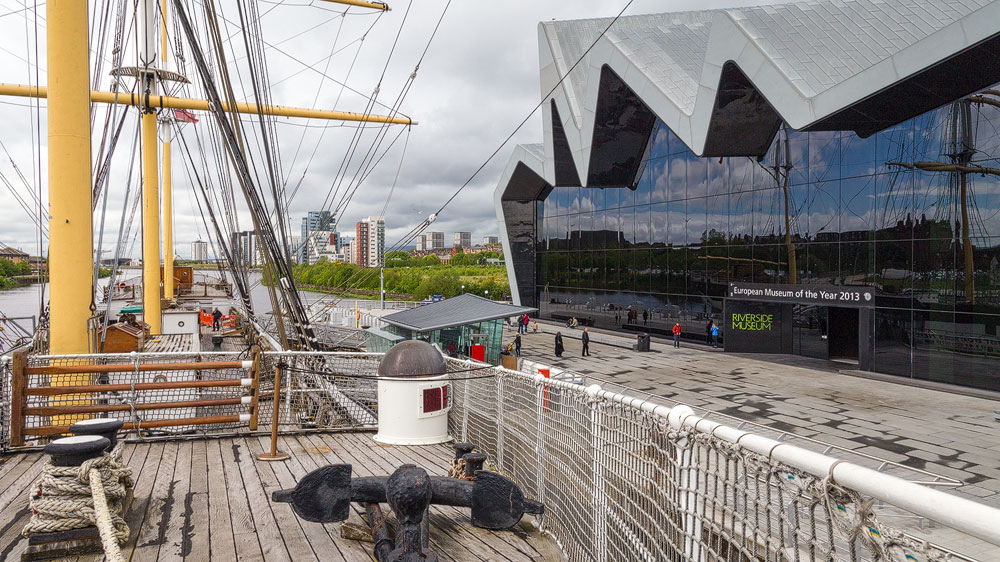
The perfect wave, immortalised in a building – that’s pretty much how I feel when I first see the Riverside Museum in Glasgow. Once again, this city has managed to impress me. What architect Zaha Hadid has built right next to the River Clyde looks modern on the one hand, but not cold on the other – it is organic, flowing and fascinating.
I wonder if it will be as fascinating inside? As usual in Glasgow, there is no entrance fee. The world that opens up here is both overwhelming and spooky. Spooky, because instead of white walls and white light, the recreated street inside is dominated by green and purple, while black horses pull a hearse. Surreal.
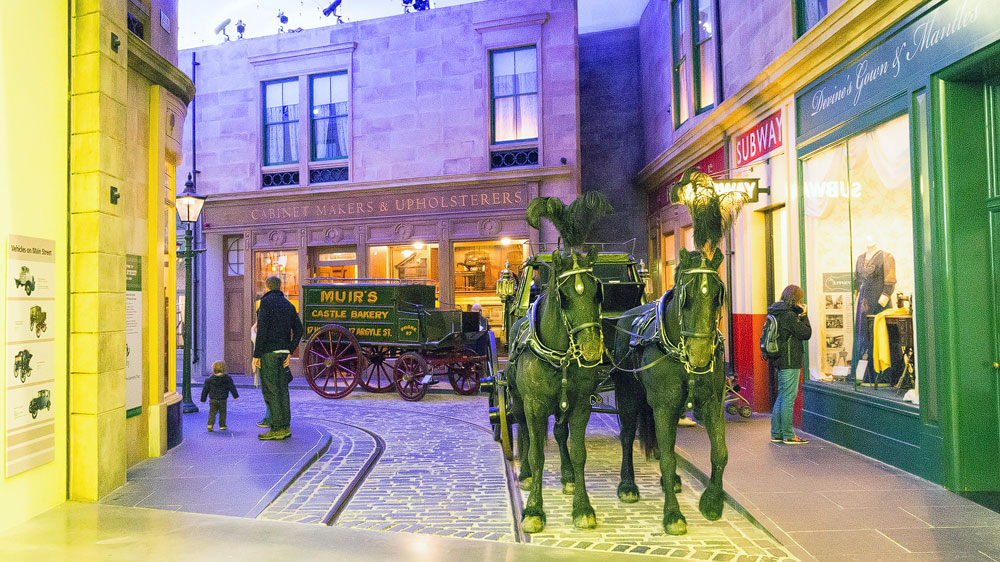
However, it is not this successful road reconstruction that is overwhelming, but rather the mass of vehicles that almost threatens to overwhelm you.
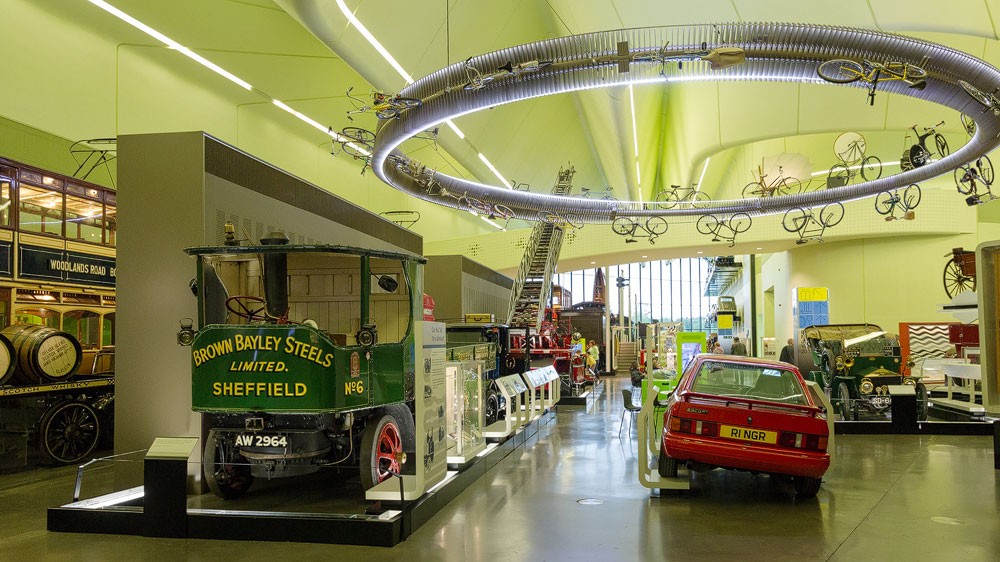
There are even bicycles attached to the lighting overhead. And the wall … a single gallery of cars.
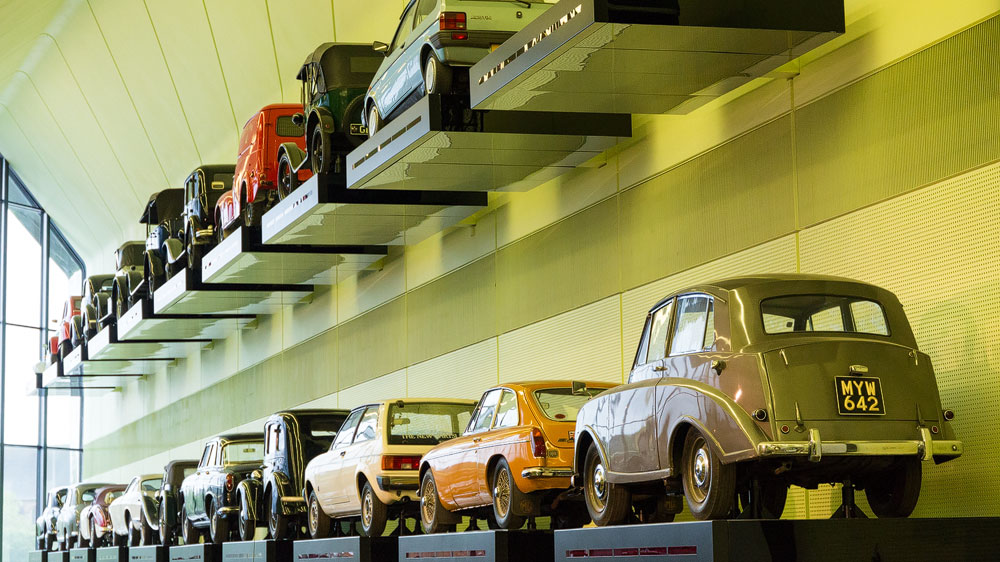
Once the shock of the sheer mass has worn off, the fun of the many exhibits begins. You can look almost everywhere, and even go inside many of them. There are themed rooms for everything from bicycles to pushchairs.
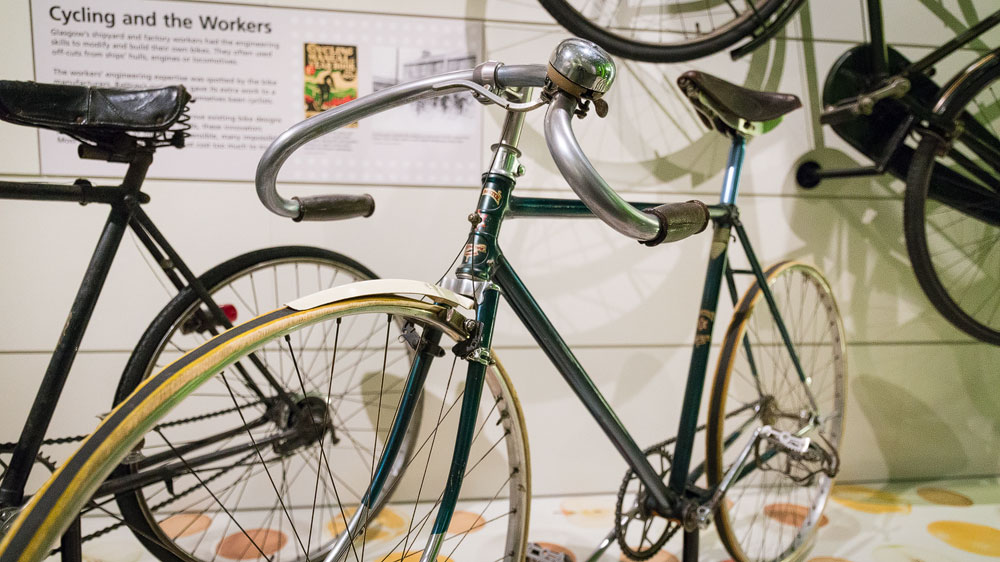
Several generations of public transport, from trams and double-decker buses to an underground railway, invite you to walk around, with original wooden or leather seats inside.
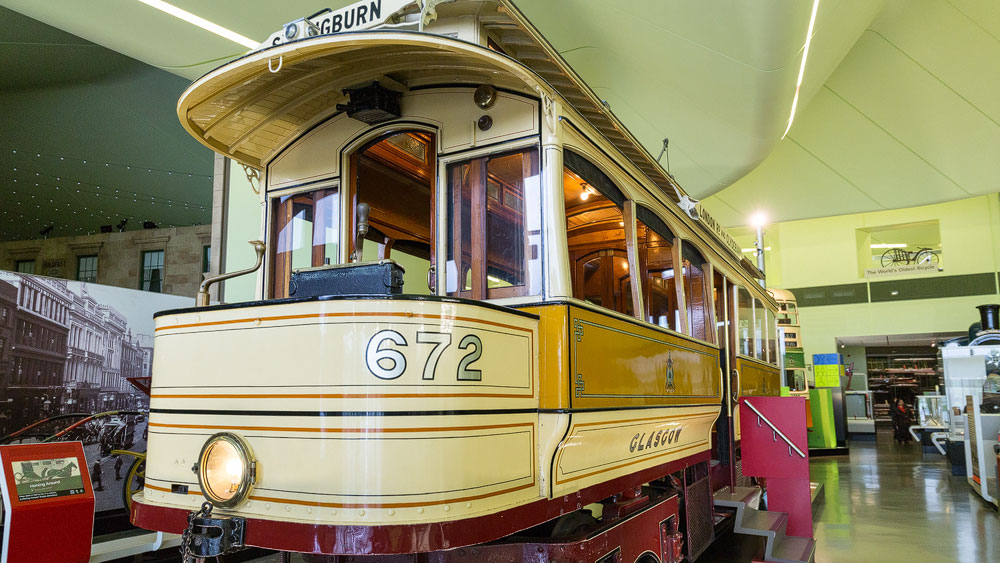
When you think of transport and the nearby river, you naturally also think of large ships, many of which were built in Glasgow in the past. They can be seen as models in display cases …
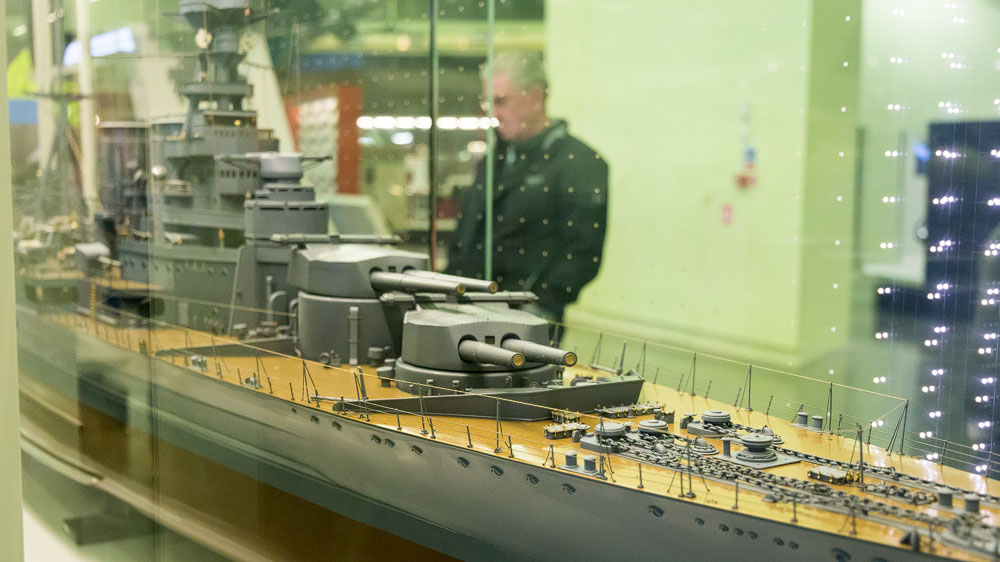
… or – much better – as originals on the River Clyde on the other side of the Riverside Museum. That’s where the Glenlee is moored. A sailing ship that circumnavigated the world several times in its active days. Today, the three-master lies lashed to the quay behind the museum. And admission to the Glenlee is also free.
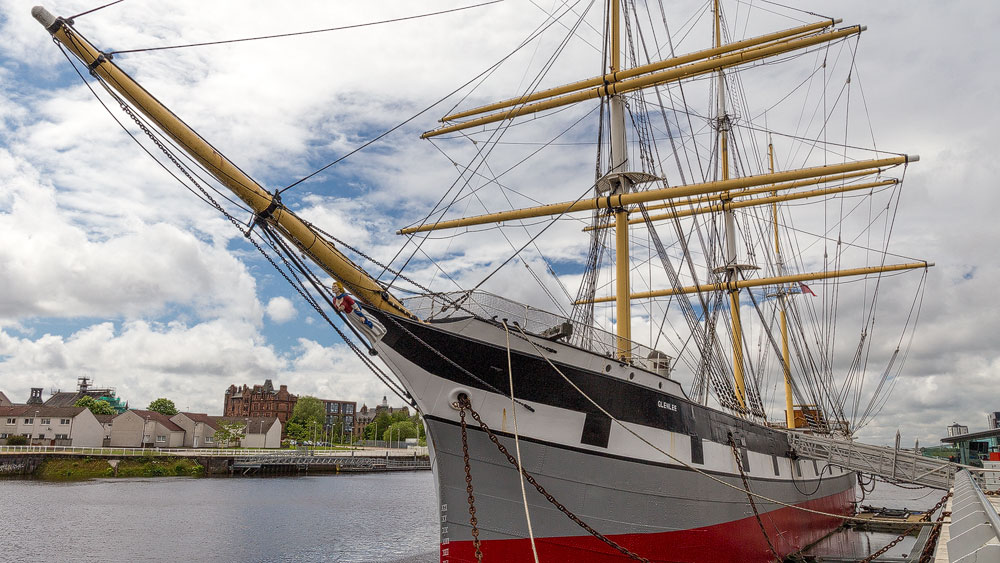
The great thing is that you can see almost everything inside the ship. The captain’s cabin, the wardroom, the galley or the crew’s quarters.
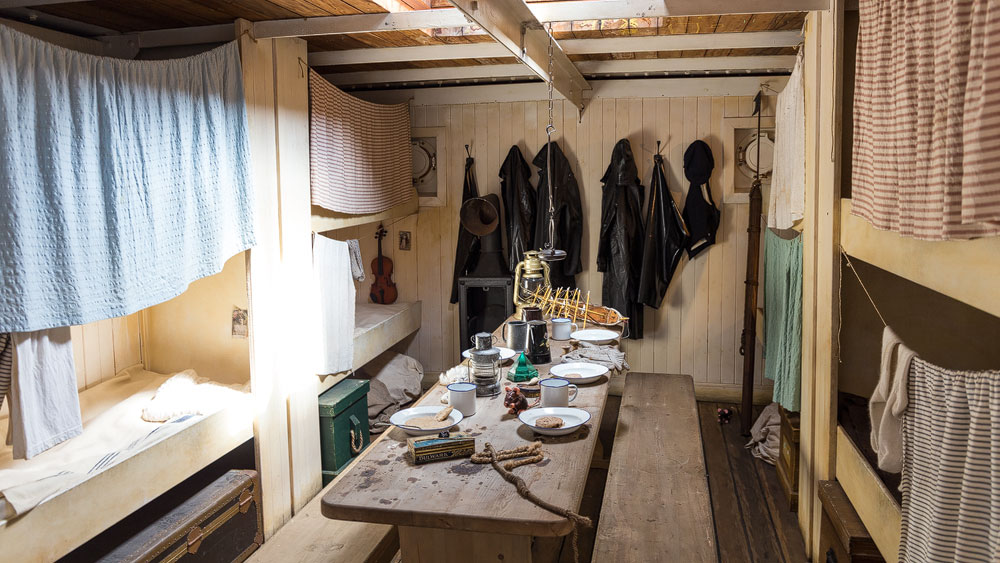
A staircase leads below deck. Here is the large cargo hold, where some nice distractions have been set up, especially for children: Small conveyor belts on which small bags can be transported across a floor, play corners and educational toys. For the older children, things get interesting further back, in the engine room: the Glenlee was fitted with two diesel engines in 1922.
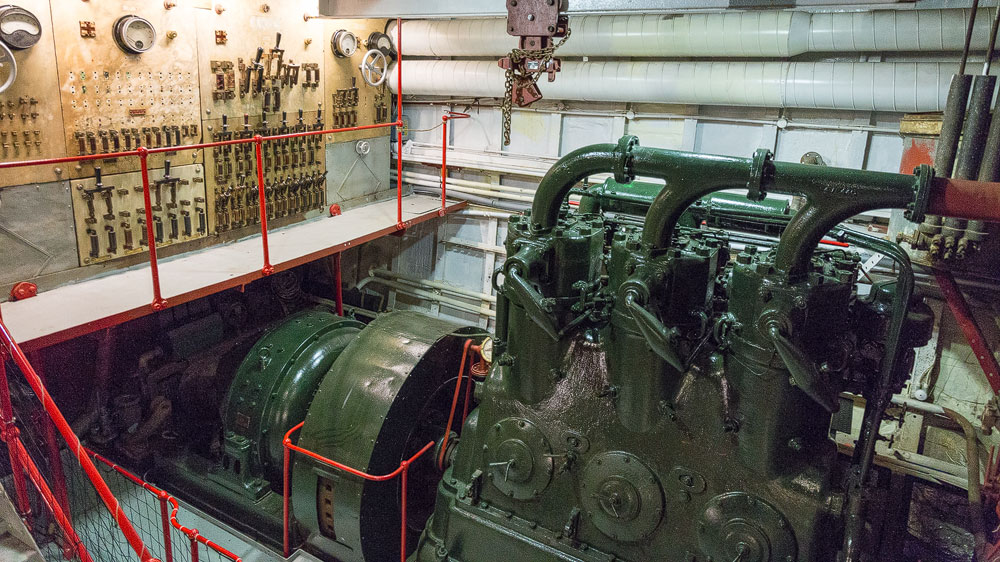
When visitors finally emerge from the belly of the Glenlee, they can enjoy the view of the nearby buildings on the River Clyde from the very front.
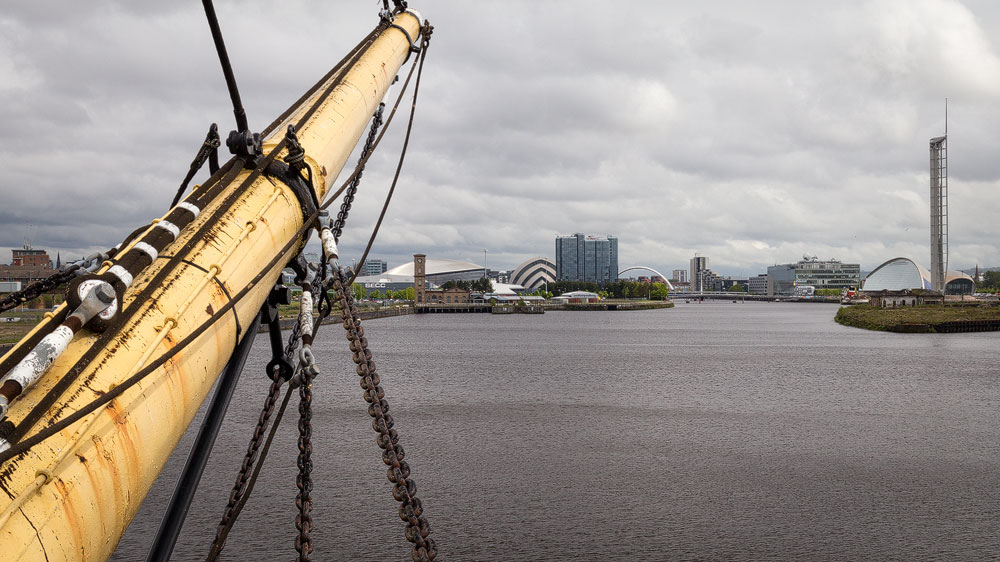
Knowledge: The architecture of the Riverside Museum
With the museum building, architect Zaha Hadid symbolises a flowing connection between the city and the museum. Wave forms are created both from the front and from the air.
The building has a glass front at the front and back, opening up to the city centre on the one hand and the Clyde on the other. The connection is a tunnel on the wrong track, because instead of running straight, the tunnel bends in a wave shape.
The Riverside Museum was built between 2004 and 2011. in 2013, it was promptly awarded the European Museum of the Year 2013 prize at a cost of £74 million, or over €100 million.
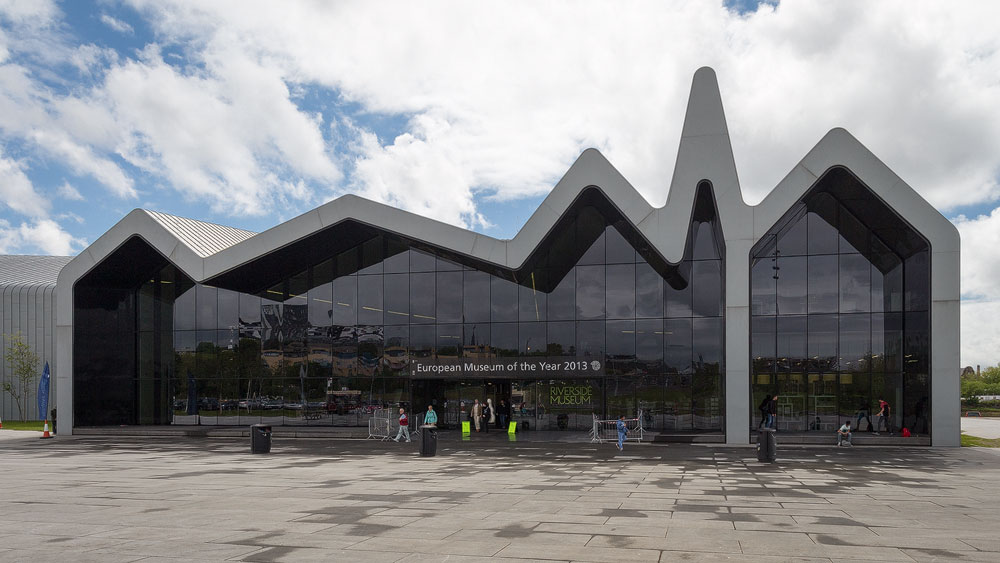
Incidentally, a German was also jointly responsible for the planning. Johannes Hoffmann first studied at the Technical University of Munich. In an interview, he talks about the building and explains that the museum is made up of steel beams with a fibreglass-reinforced plaster shell. This allows for thin and curved surfaces and is also more fire-resistant.
Personal note: Volunteer guides in the museum
What always amazes me about Glasgow is how much you get to see without having to pay for it. They don’t even do without guides. In the Riverside Museum there was an elderly gentleman in uniform who told us a lot about the Commonwealth Games in Glasgow and also gave us some background information.
It was a point of honour that we threw something into one of the donation boxes afterwards. After all, if you think about how much it costs to maintain all these vehicles and a sailing ship of this size, you’ll gladly pay for this fantastic experience.
Tip: A visit to the Clyde architecture or the Govan Stones

Hydro SECC, the Armadillo, the Needle, the Millennium Bridge, the Clyde Arc and the Science Centre – impressive new architecture is grouped a little further up the River Clyde. It is easy to stroll along the River Clyde, for example as a circular walk between the Clyde Arc and the Millennium Bridge – to one side of the river and back on the other.
However, the footpath does not initially lead along the river, you have to walk towards the road. A few hundred metres later, you can turn right back to the riverbank.
An alternative is a walk across the river. Right next to the museum, the Govan-Partick Bridge has spanned the Clyde since 2024. Govan is a very old village whose church exhibits marvellous carved stones from the Middle Ages – the Govan Stones. The Fairfield Heritage Centre also shows what a gigantic shipyard used to be here.
How to get there:
By car with satnav: The postcode “G3 8RS” will take you very close, the street address is 100 Pointhouse Rd.
Without sat nav: Take the M8 through Glasgow until the exit “Clydebank S.E.C.C. A814” is displayed. Leave here and follow the A814 towards Dumbarton. A little later take the exit “Partick – Glasgow Harbour” and at the top just go straight over the crossroads to the large car park in front of the Riverside Museum.
By public transport: Tourists can also take the city bus, which stops at all the main sights – including the Riverside Museum.